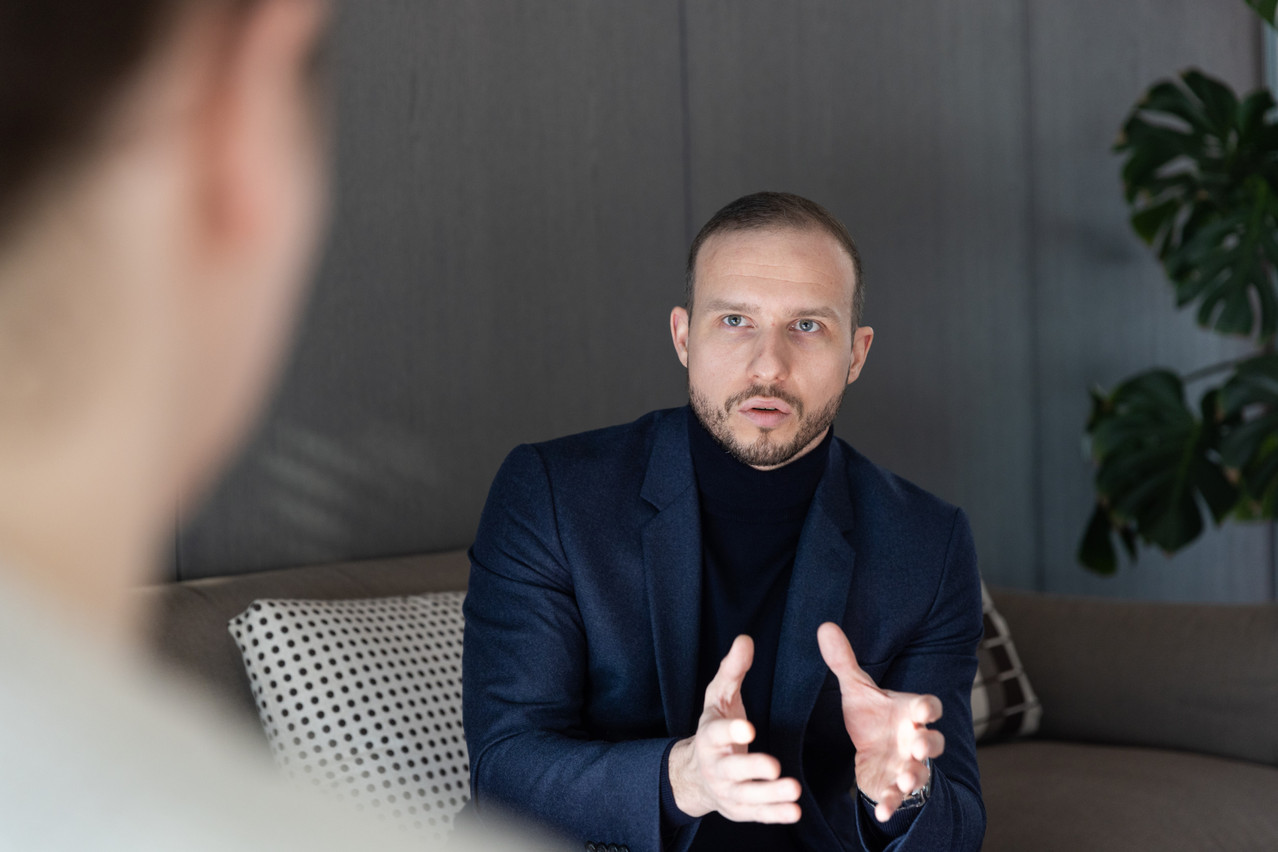Harvey is the name of the newest technological tool implemented by Allen & Overy in their work process. An AI programme “more advanced than ChatGPT”, this specialised technology “is revolutionary,” Baptiste Aubry, head of financial services regulatory in Luxembourg told Delano in a Luxembourg exclusive interview. “Beyond creating content that mimics a type of intelligence, it demonstrates true legal logic and is a work tool immediately useful for the lawyer.”
The partnership with OpenAI is a premier as A&O is the first law firm participating in the launch of Harvey, “worldwide too, I believe,” says Aubry.
Hours of research shaved down to seconds
The AI tool--currently available in French and English--allows lawyers to channel legal data, understand it and extract the relevant components. It works similarly to other chatbots as lawyers type a request and receive a newly formed answer that takes into consideration existing regulatory aspects extracted from various databases. Ongoing legislative procedures that aren’t completed are also taken into consideration by the AI as elements to potentially integrate in the future.
It’s as if our lawyers had a sparring partner to start all legal analysis.
In a demonstration for Delano, Aubry showed how swiftly the program worked. When asked to provide a Powerpoint presentation with 5 slides presenting 3 points, for a Luxembourg-based attorney treating a given subject for a German bank, Harvey within seconds prepared an outline bringing together different legal aspects--relevant to both countries--to consider for the case. In just as short an amount of time, the program could produce an email summary or research memo for other cases.
“It saves us massive amounts of time,” says Aubry. “It’s as if our lawyers had a sparring partner to start all legal analysis,” regardless of the domain of the law. Of course, as is the case with AI technology, the program continuously evolves over time. But most importantly, it demonstrates “a real understanding” and a “legal logic” rather than being a static collection of data.
A solution to data and regulatory inflation
The exclusive partnership with OpenAI on Harvey is something A&O is “very proud to have been able to negotiate,” says Aubry. The technology is likely to have an impact on the entire industry, says the head of financial services regulatory, and therefore it’s “good to be a pioneer”--especially for a company that wants to be the most technologically advanced law firm in the world.
Regulatory inflation brought us to a point where we wondered how we would be able to continue guaranteeing that the most up-to-date information formulated by authorities is included in the legal advice we give our clients in the future.
The budget invested in this partnership could not be disclosed but “it is a clear manifestation of Allen & Overy’s technological ambitions,” Delano was told.
For the firm, it made sense to adopt AI into their legal processes, explained Aubry, as exponentially growing quantities of data and “regulatory inflation brought us to a point where we wondered how we would be able to continue guaranteeing that the most up-to-date information formulated by authorities is included in the legal advice we give our clients in the future.”
“With a tool of this kind, there is an additional assurance that we have covered more databases,” says Aubry.
Improving attention
A frequent criticism towards AI chatbots like ChatGPT or Google Bard is not just the bias they can reflect--a bias largely deflected in Harvey due to the nature of its content--but also the factual errors that can slip into a well-formulated text. Despite its superior technology to ChatGPT, Harvey is not safeguarded from errors, and Allen & Overy is aware of this.
This known factor pushes lawyers to pay more attention when reading through the content generated by Harvey. The time saved on compiling the regulatory data and examining different databases will also allow lawyers to “keep their high-quality standards” and “spend more time on purely intellectual work like the analysis and delivery of a product fitting the client’s request.”
The program was test launched in November 2022, where 2,000 lawyers in the A&O network tried it, giving positive feedback on it. Currently, Harvey is used by around 3,500 lawyers.
A companion, not a replacement
During the test phase, Harvey was fed around 40,000 legal questions, allowing it to progress, but even so, the tool does not serve to replace existing staff.
Despite the workforce shortage that the legal world, like every other sector, has been witnessing, Harvey wasn’t an answer to this issue, but rather “the inflation of data. If we had to hire as many people as needed to keep up with the growth in data available, we wouldn’t be able to make it work.”
The AI tool should also directly benefit not just interns but also clients, confirmed Aubry. For interns, it will allow them to gather content they can verify and improve quickly before providing added value through their own knowledge. For clients, its impact on time spent doing research will be reflected in the billing, as lawyers will be able to charge for what they are paid to do: analysis and advice.
If we had to hire as many people as needed to keep up with the growth in data available, we wouldn’t be able to make it work.
Confidentiality and cybersecurity risks are also covered, the firm assures, adding that it is in contact with OpenAI to continue improving it.
"Harvey really does have the potential to revolutionise the world of legal advice,” says Aubry. Though it cannot replace lawyers and the human touch they bring, it is a “tool for improvement, it protects the lawyer and acts as a safety net.”



